Micky Dolenz is best known as the lead singer and drummer for The Monkees, a group whose music and television show offered a fun, zany, and sanitized take on the emerging youth culture in the 1960’s. Although the television show lasted only two years, it has remained popular and influential to the present day. Dolenz’ vocals can be heard on songs such as “Last Train to Clarksville”, “I’m A Believer”, “(I’m Not Your) Steppin’ Stone”, “Pleasant Valley Sunday”, and “Porpoise Song”. Altogether, four of The Monkees’ albums and three of their singles hit Number 1 in the U.S. charts.
The following is from a phone interview with Dolenz on 7/5/12, for a preview article for the Happy Together Tour visit to the Chumash Casino on 7/12/12.
Jeff Moehlis: What can we look forward to for your part of the Happy Together show at the Chumash Casino?
Micky Dolenz: Basically, everybody does about a half hour. I do the big, big Monkee hits. You’ll hear all the great big Monkee hits.
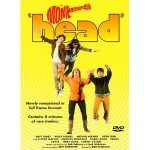
JM: I saw the concert by The Monkees almost exactly a year ago at the same venue, and these may not be the hits, but I was happy that you played the whole album “Head”.
MD: I know, it was fantastic. What a great show, and we got such great reviews on that show. That was a great show – I loved it.
JM: Do you have any reflections on that particular album or movie?
MD: Well, yeah, quite a few. I was very proud of all of it. I think I did some pretty interesting work as an actor in the movie, and of course I sang a couple of the songs in the movie. I think that some of the material from that movie was some of the best we’d ever done. Those Carole King tunes especially, “Porpoise Song” and “As We Go Along”, are still two of my favorite songs, not only to listen to but to sing.
JM: What was it like working with Jack Nicholson on that?
MD: Well, you know, he was just starting out there at that time. He was an actor, doing B movies, and he wanted to become a writer. Of course, he was still very young. I have always really admired Jack. I’ve always liked him, I’ve always had a great time with him. He’s a very charismatic, funny, wonderful, interesting person. One of the most interesting people I probably ever met.
We spent quite a bit of time together before the movie. He was learning about us, and meeting us, and hanging out in my house. And then we all got together and discussed what we wanted to do in the movie, and he went away with Bob Rafelson and wrote that really wonderful, bizarre script [laughs].
JM: Sadly, since that last tour Davy Jones passed away. Could you describe the Davy Jones that you knew?
MD: He was a very talented, wonderful, funny, loving guy. He was so much fun, and he’d literally give you the shirt off his back. We had a lot in common. We both loved horses. He raised racehorses, and I played polo and did equestrian stuff. And we had families about the same time. We hung out a lot together, he and I. I think it had a little bit to do with the fact, also, that we both were in the business since we were kids. He had done Broadway [actually London’s West End] in Oliver! as the Artful Dodger, and I’d had a TV series when I was a kid. So we had a lot in common in that sense. We hung out an awful lot. He was a great guy.
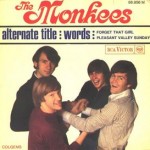
JM: One of the songs you did at the show last year – I don’t know if you’ll do it here – is one you wrote called “Randy Scouse Git”. What’s the story behind that song?
MD: [laughs] Well, I won’t be doing it on this short, truncated version. Like I said, I’m doing the big Monkee hits. But that was a big hit in England. It went right up, I think it got to Number 2 in the charts, only kept out by The Beatles or something. The story is that I was in England on our tour, with The Beatles and everybody, lots of other people. So it’s kind of a little diary if you will, a stream of consciousness diary of my experiences there, and the people that I’d met. I called it “Randy Scouse Git”. I didn’t know what that meant. I was watching a television show called “Till Death Do Us Part”, which eventually became “All in the Family” over here, and the father called the young son character a “randy Scouse git”. And I just thought it sounded hilarious. I didn’t know what it meant, but that’s what I named the song.
Then the record company called me months later and said, “They want to release that in England as the single, but you have to rename it.” And I said, “Why?” They said, “Well, because it’s rude.” I said, “But I saw it on television.” And they said, “Well, no, sorry, the record company won’t call it that. You have to come up with an alternate title.” And so that’s what the song is called in England, “Alternate Title”.
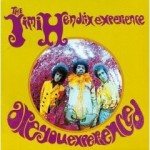
JM: One interesting thing about The Monkees is that there was a short time when you had Jimi Hendrix as an opening act on tour. How did that come about?
MD: It’s kind of a long story. I’ll try to make it short and sweet. I’d seen Jimi play as a sideman for some blues band in New York. He was known then just as the guy that plays the guitar with his teeth. And months later I was at Monterey Pop Festival, and all of a sudden The Jimi Hendrix Experience walked onstage, and I recognized him. I said, “Hey, that’s the guy that plays the guitar with his teeth.” At the time, the producers and us were looking for an opening act for the upcoming Monkee tour. I thought he’d be really good because he was very theatrical, and The Monkees was a very theatrical act. I guess they liked the idea, and our people liked the idea because, lo and behold, he was the opening act for The Monkees for the first six or eight shows.
We had lots of other opening acts, too. We had The Fifth Dimension, we had Ike and Tina Turner. We had a number of different acts.
JM: Did you watch the acts from the side?
MD: Oh yeah, of course, yeah. It was obvious that Jimi was a force to be reckoned with. So yeah, absolutely we watched. And we hung out, of course. We traveled together and hung out. He was a lovely guy. Very sweet. He was a young kid. A sweet and naive kind of guy.
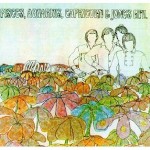
JM: I was reading up on you, and I didn’t realize this, but you personally have the distinction of being the first person to play a Moog synthesizer on a rock record. [“Daily Nightly” from Pisces, Aquarius, Capricorn & Jones Ltd.]
MD: Yes, that’s true.
JM: What’s the story behind that?
MD: I’d heard about it, and I was fascinated. Because I’m kind of a science geek. I had my first computer in 1979. So I was always on the watch. Even back then I was reading all of the science magazines. I don’t remember exactly where I heard about it, but I did, and I thought, “Wow, this sounds very cool.” And so I chased it down, basically. I found out the guy in L.A. who was representing the company, and I said, “I want one.” And he said, “OK” [laughs]. I had him make me one, actually in traveling cases. I was going to take it on the road. But I kept it and used it and worked with it, and played around with it for years and years. It was a very complicated, involved instrument to program, but I’m glad I did, and I used it on a couple of tunes there, a couple of Monkees tunes.
JM: What advice would you give to an aspiring musician?
MD: Get a good lawyer [laughs]. Get a good lawyer [laughs more].
JM: I’ve heard that one before.
MD: All kidding aside, it does help to have good representation.
When I give talks to people, I remind any artist, musician or whatever, that there’s two words in “show business” – there’s “show” and “business”. And you’ve got to be good at both. You can’t just hope that because you’re a great musician, and you’re passionate about your music, that anybody’s going to hear it. Especially these days. So if you want to make a living at your art, like, say, as a musician, then you have to at least acknowledge, and you have to deal with the business side of the equation.
You also have to deal with the music side. You have to practice. Having talent is wonderful, and obviously an important element. But you’ve got to develop that talent, you have to train, you have to practice. And then, like I say, you have to acknowledge and deal with the fact that there’s also the business side of it. If you’re just happy to sit at home and just play for your own amusement, then of course it doesn’t matter. But if you actually want to make a living at it, then you do have have to acknowledge that there’s the business side of the equation.
JM: There’s a rumor about that when The Monkees had the TV show, you essentially bribed the cameraman to get more close-ups.
MD: [laughs] That’s a new one. I never heard that one [laughs].
JM: It’s on the internet, so it must be true.
MD: Obviously it’s a load of rubbish.
JM: Just so you know how the rumor goes, then Davy Jones offered a bigger bribe for more close-ups.
MD: [laughs] That’s bullshit, yeah. As most of that urban legend stuff is.
It might have been a joke. I can imagine that we might have joked about it in some interview. “How come Davy gets a lot of close-ups?” “Because he bribed them!”
JM: Along those lines, do you want to set the record straight on anything regarding The Monkees or the rest of your career?
MD: No, because I really don’t pay much attention to the bullshit, to be honest. You know, The Monkees was my second series. I’d already had a series when I was a kid called “Circus Boy”, and then when The Monkees audition came along I had already auditioned for a couple of shows that year in the pilot season, for music shows. The Monkees was different, though. I remember thinking, “This is really a great show. I’d like to get this one.” I was a guitar player, not a drummer. I had been studying classical guitar when I was a kid, Spanish guitar, and then eventually started playing more folk music as kids of my generation did. Eventually that morphed into rock ‘n’ roll. But I was a rhythm guitar player. So when they cast me as the drummer I wasn’t starting from scratch. I could read music, and I started practicing, of course, right away. But that was my second series, The Monkees.
JM: The Monkees had various songwriters making a lot of great songs. You mentioned Carole King, then there was Neil Diamond and people like that. Did you have much interaction with the songwriters?
MD: Absolutely. Not so much Neil because he was in New York. But all of the West Coast writers like Carole and Diane Hildebrand and Carole Bayer Sayer and David Gates, Paul Williams, Boyce and Hart. You can’t forget Boyce and Hart. Tommy Boyce and Bobby Hart not only wrote some of the biggest hits, but also were very responsible for the original sound of The Monkees, because they were the producers and arrangers. And producers and arrangers have a lot to do with the initial sound of any act.
JM: Jeff Barry, who worked with you, lives here now.
MD: He was great. He wrote and produced some great songs for The Monkees.
JM: He told a story about how he first brought “I’m A Believer” to the band, and to make a long story short, he basically said that Mike Nesmith was, shall we say, underwhelmed by it. Do you remember that? [Jeff Barry’s version of this is here.]
MD: No, I don’t. Because it’s unlikely I was there. We didn’t live together, literally. I don’t recall that. You’d have to ask Mike about that.
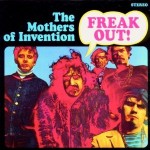
JM: I read that Frank Zappa offered you a position in The Mothers of Invention.
MD: Yes he did.
JM: It seems that would have been an awesome gig. What happened?
MD: [laughs] You know, we lived down the street from each other. He was a big Monkees fan. He had actually been on the show, and in the movie “Head”. He was a big fan, and he got it. He understood what The Monkees was all about. Yeah, he lived down the street, and one day, it was towards the end of the project, the show I think had already gone off the air and we were still recording a bit and touring, and he called me one day and said, “Would you like to be the drummer for The Mothers of Invention?” I was incredibly flattered of course, and honored. I was scared though, also. I thought, “Oh man, I don’t know if I can cut it.” But I called my record company anyway. He said, “You have to get out of your contract with the record company, because we’re going to be recording.” And the record company said “No”, they wouldn’t let me out of the contract.
JM: I can understand, that would have been a bit intimidating.
MD: To be honest, I’m not sure I could’ve cut that gig. That was pretty heavy-duty stuff.
JM: What’s on the horizon? What are your plans, musical or otherwise?
MD: I’ve got lots. I did a tribute album to Carole King a while back called King for a Day. I’ve got the Happy Together tour until the end of August, and then I’ve got my solo show. Then I have another CD I’m working on. I also do a lot of musical theater. I just did Hairspray for the best part of a year back in England, in the West End. I’ve done Broadway. I did the Elton John / Tim Rice musical “Aida”. I have an offer to go back and do something in the West End, and maybe something on Broadway. I love doing musical theater. So I’ve got lots of irons in the fire.
JM: It’s nice that you’re not slowing down at all.
MD: I tried retiring once. I was suicidal [laughs].
JM: Of course, people are going to wonder – are there any future plans with The Monkees?
MD: You know, there’s always the possibility. There’s nothing that I can talk about right now. But there’s always that possibility, you know?

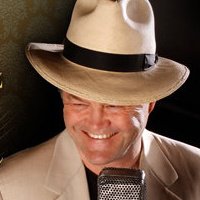
i’m always on your side,i love you so much ! when i think of you i still feel like that ten yr old school girl with her first crush, although i’m really fifty something. it’s just great to still know i’m alive. you bring that same happiness to millions of people with your work. keep that handsome chin up!